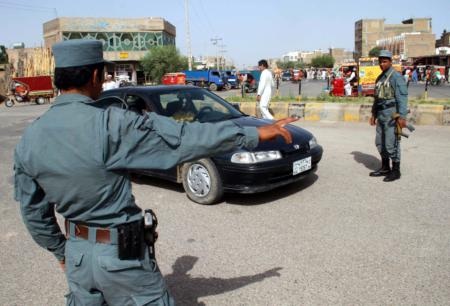By Sayed Wahed Hashemi
Ali Ahmad, 19, and Samira, 18, were walking down a street in Herat in western Afghanistan when a police car suddenly drew up in front of them and officers got out to question them about the nature of their relationship.
The young couple explained that they were engaged and due to marry soon, and had come out together – with the permission of both their families – to discuss their future together.
Nonetheless, the police arrested both of them, sending Ali Ahmad to a detention centre and Samira to a juvenile reform unit.
Gholam, Ali Ahmad's father, said his son had wanted to meet his fiancée before their arranged marriage, and this had been their second encounter.
“My son is still imprisoned,” he said. “I don’t know what’s happening with the case or when the court order is going to be issued.”
Mohammad Hassan, the lawyer responsible for Ali Ahmad’s case, said that the young man had been initially detained on a charge of suspected “fornication” which, based on article 427 of Afghanistan’s criminal code, can lead to a prison sentence of five to 15 years.

Afghan police in Herat city, July 17, 2011. (Photo: EPA/Jalil Rezayee)
The case of Ahmad Ali and Samira is not an isolated one. Ferdaus, a member of the lawyer’s office for morality crimes in Herat, told IWPR that 14 cases of intended fornication had been referred to court in the past four months.
General Sayed Aqa Saqeb, the police chief in Herat, said his officers respected everyone’s rights, but at the same time they had to give priority to Islamic law and to prevailing social attitudes.
“Police must have the right to ask anyone to identify themselves and state where they are going,” he said. “We want families to be able to go out freely for sightseeing and picnicking without any harassment, but anything that is against the law and shariah is unacceptable.”
Legal experts argue that it is the police who are behaving unlawfully.
Mohammad Alef Erfani, head of the defence lawyers’ association in Herat, said that based on article 27 of the constitution of Afghanistan, no one can be arrested or detained unless in accordance with the provisions of law.
“By law, there is no crime in girls and boys being together, and people can only be arrested if they commit actions that are deemed crimes under the law,” he said. “Arresting such individuals is therefore against the law, and no punishment can legally be imposed.”
Erfani said the issue had already been referred to Afghanistan’s Supreme Court, which ruled that while it was sinful for unrelated men and women to be alone together, if unaccompanied, no legal restrictions could be applied.
Herat lawyer Gol Ahmad Ramesh said that despite the lack of specific legislation, the Afghan constitution stated that courts could issue rulings based on the Hanafi school of Sunni Muslim jurisprudence on any matter not covered by normal laws.
“Thus, if a boy and a girl who have no legal relationship go out together without the intention of getting married, this is not permissible under shariah and they must be punished,” he said.
Dad Mohammad Wahedi, a university lecturer in Islamic sciences, dismissed this interpretation, saying such restrictions reminded him of the days when the Taleban ruled Afghanistan, and women were forbidden to leave home unless accompanied by a male family member.
“We cannot build a wall between men and women as the Taleban government did, when schools and universities were closed to girls,” he said. “We have thousands of male and female students in Afghanistan, who are with one another inside the university and in the classrooms. They’re also able to meet each other outside study time. Should we arrest all of them?”
Human rights organisations are critical of the police’s behaviour, but say they have been unable to take action to counter it.
Sharifa Shahab, who is in charge of monitoring police activities with the Independent Human Rights Commission’s Herat branch, said personal freedoms were enshrined in the constitution, but this did not stop police harassing couples – even married ones.
“It’s an offence to human dignity,” she said. “We urge police not to offend people's honour. They must respect people’s freedoms. They must act in accordance with the laws of the land.”
Some experts believe police harassment has more to do with corruption than moral principle. According to Aziza Khair Andesh, director of a civil society and human rights network in Herat province, “Actions like this may be motivated by bribery, since both parties will be prepared to pay a lot of money to preserve their honour.”
General Saqeb accepted that some police officers might be abusing the system.
“We don’t deny this,” he said. “Policemen are human, too. They are members of the same society. They might abuse their positions, too.”
Many young people in Herat are concerned that they are potential targets of arbitrary police actions.
“No one is legally allowed to interfere in people's personal affairs without a judicial order or a legal complaint, or to interrogate people about their relationships,” Rahmatullah, studying law and political science at Herat university, said. “If they do so, it’s a breach of the law.”
Shabnam Soraya, a teacher at a private school, said officials needed to be educated about the rights of members of the public.
“The police are not entitled to move against young people,” she said. “They must only take action when there’s an obvious crime.”
Sayed Wahed Hashimi is an IWPR-trained reporter in Herat



